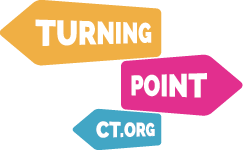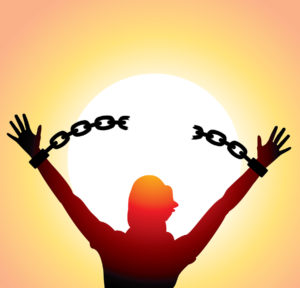What have you struggled with? When did it become too much?
I have struggled with a lot. I feel like they’re all sort of interconnected. I used to blame myself, my thought being that I was just weak. I would tell myself other people have been through so much worse, how can I be so depressed and anxious? But now I realize that it’s not that I was weak. Everyone responds to their traumas differently. I’ve realized how strong I am because honestly, I have been through so much, but I still keep pushing forward everyday, even when I really don’t want to.
I’ve struggled with disordered eating. I felt like I had no control over anything in my life, but starving myself and skipping meals was something I could control. It was never so much about my weight because I have been small my entire life. It was really about grasping onto the control it made me feel like I had. As I got older, starving myself became a way to physically harm myself because I just really felt like I deserved to suffer. That was something I struggled with on and off from middle school through college. There are still days where I unintentionally don’t eat because my body’s regular hunger signals are all over the place from years of disordered eating.
Another thing I have really struggled with is depression. I’ve had thoughts of suicide since I was probably in middle school. I was in middle school writing suicide notes and stuffing them in between my mattress and boxspring. I would plot and plan, but I never did anything. It wasn’t always that I actually wanted to die and be completely done. I just wanted to escape the situation I was in and that seemed like the only way. There are days I don’t want to get out of bed. There are days I want to just sleep. There are days I can’t stop crying throughout the day. I would literally be at work or in class with tears silently streaming down my face. The depression doesn’t come around as much as it used to, but I do still struggle. Despite what people might tell you, recovery isn’t linear. It’s okay to have good and bad days, it happens. Life can’t be like the fairytales, bad things happen and it’s okay to react to them.
Another thing I have had issues with is my anxiety. I don’t think I had ever really had full blow anxiety until I was in college, but that also might just be when I really recognized it for what it was. When I was in college, there was one drunken night when I made one of the worst decisions of my life. Someone offered me a pill (Red Bull, it was MDMA) and they told me it would make me happy (I was really depressed because my best friend had just attempted suicide and she had almost completed). Drunk me decided it was a great idea.
I had a horrible trip. I was screaming and throwing myself up the walls in a bed. By the end of the night my hair was in a giant knot from throwing myself around. It was after that night that I started to have issues with anxiety. Drugs like MDMA are meant to significantly spike serotonin, a chemical in the brain that’s makes you feel good. The issue is, after taking it, it depletes it and causes psychological effects. When the anxiety got really bad, I finally had to tell my mom what I did and she took me to a special naturopathic doctor where I ran tests to see how chemically imbalanced my brain was so I could take things to try and balance it out.
A few months after the incident, I had my first panic attack. I had no idea what it was, so naturally, I thought I was dying. Increased heart rate, extreme feeling of impending doom…I felt like if I stopped moving, I was going to die. I was convinced I was having a heart attack or something and that I was going to drop dead. I was at work and I eventually called my friend to get me from work and I wanted her to take me to the hospital, but she knew it was a panic attack and she was able to calm me down.
One of the things nobody tells you about anxiety is that it’s more than just feeling nervous. For me, it’s the physical symptoms that really get me because they really can be associated with real medical issues that might be life threatening. For me, my heart races, I get shortness of breath, my hands become numb, I feel nauseous, I get GI issues, I clench my teeth, and I’m sure there’s things I’m forgetting. And of course, these physical symptoms cause my anxiety to heighten. I would be in class or at work experiencing these symptoms and for people who don’t understand, it’s hard to be like hey I’m not okay and I can’t be here right now. One time I literally forced my doctor to give me an x-ray of my lungs because of the physical symptom shortness of breath. The x-ray came back and showed nothing was wrong and she suggested I see a therapist.
For a short period of time, I turned to substances to try and block everything out. It was a way to make myself numb. I wasn’t drinking and smoking just for fun. Honestly, a lot of the time I was doing it alone. I liked to drink or get high to the point where I was just a vegetable. I just didn’t want to feel anything. It was easier than being sober where my thoughts were running wild. This period didn’t last that long, and I’m sure my body thanks me for that. I chose to be completely sober a couple of years ago because I just knew having issues with depression and anxiety, I would try and turn to substances to try and make myself numb and I would take it too far.
At one point I started smoking cigarettes and to be completely honest it was another way of me just trying to harm myself. It’s horrible, but I was like I hope I get cancer and die a slow painful death. My reasoning? I felt like I deserved it. News flash, I don’t deserve it. Thankfully the cigarette smoking didn’t last long either.
At some point in college, I was getting really bad and I went to a therapist. I was barely functioning and it was effecting my school and work. I remember she diagnosed me with PTSD. I checked almost all of the boxes. I didn’t want to face it, and I stopped going to see her shortly after. Digging deep was bringing up stuff I didn’t want to remember and it was making me even worse emotionally to the point where I was crying what felt like 24/7.
Looking back now, I’m going to assume what she actually meant I had is CPTSD, not that that’s any better than just regular ole PTSD. Mine wasn’t from just one traumatic event, but from repeated trauma over YEARS. There are a lot of things that trigger me that don’t make sense to those around me because my brain was literally wired by trauma. I had to do a lot of things to try and protect myself growing up. It’s something I definitely try to work on, but there are so many things I have just buried deep down that a lot of my reactions to things that shouldn’t be issues are subconscious.
What kind of support did you get at first? Did it work?
When I was a freshman in college, my friend pushed me to go to CAPS (Counseling and Psychological Services) for therapy. I went in the spring semester and it worked. I figured I would be good to go for life, but man was I wrong.
I ended up going back my sophomore year, but I got a new intern. I felt like she was judging me (I was kind of spiraling and making just all around really bad decisions). I would tell her something, and I could just see in her face that she was thinking what is wrong with this girl. Honestly, it made me feel worse. I finished therapy through the semester and then I stopped thinking I was cured. Wrong again.
When I pulled myself out of school before the start of my junior year, I went to CAPS again and demanded they give me someone who wasn’t just an intern because I felt like I had way too many issues for the interns to help with. It was there that we decided I wouldn’t go to school that semester and one of the therapists there referred me to Sound Community in New London, CT to do a Dual Diagnosis Program.
The Dual Diagnosis was for people with substance abuse issues and mental health issues. It was a group therapy type thing. I was 20 at the time and I was the youngest one there. The adults loved me though, and there was one woman who told me I reminded her of her daughter. Another would draw me things. We were taught coping skills and just overall educated. We had worksheets and we did projects. I really learned a lot while I was there. I graduated the program sometime in October and I went into individual therapy with one of the people who led the group.
I absolutely loved my therapist I had been assigned. It felt like she really understood me. I was comfortable sharing everything and anything with her. She really helped me so much. I stopped seeing her when they made some changes and the group social workers couldn’t have individual clients anymore. We both agreed that I was ready and I was a lot better than when I first entered the program. Having a therapist you really connect with is SO IMPORTANT. If you don’t feel like you click with your therapist, absolutely try and look for another one because it will make a huge difference.
What’s your life like now? What have you been able to accomplish, and what are you working towards?
I graduated from college in August of 2020, five years after starting college in Fall of 2015. I graduated with a degree in New Media Studies with a concentration in Integrated Communication Media.
When I was in college, I started a blog called https://combatinganxiety.com/ as my senior project, I feel that sharing my story is really important for people that are struggling. It’s nice to know that you’re not alone. I share my story to try and help end the stigma. Discussing mental health should not be a taboo.
I have been working for my mom’s blog since 2015 and I really like the work. This summer I took a food photography course and I now take photos for her recipe posts! It’s really cool getting to see my photos published on her site and her social media.
2020 was rough, but it gave me time to really do things I wanted to do (I had been working multiple jobs and going to school for years and the pandemic gave me a break from that life). I really got back into photography and it has been great for my mental health going out hiking with my camera. I’ve also become a bit of a crazy bird lady and I love sharing my bird photos with others who love them as much as I do!
My biggest accomplishment to date is becoming Turning Point CT’s newest team member. I am now their social media assistant! This is my first job I have taken since I have graduated and I am so happy to be a part of something and to help make a difference!
What would you say to people who are having a tough time? What’s helped you that you wish you had known earlier
Well for one, you are NOT alone!
Second, recovery is by no means linear. You can’t expect to just be happy all the time and not depressed or anxious or struggling. You absolutely cannot beat yourself up if you’re having a hard time in your recovery. It just isn’t helpful to beat yourself up. Acknowledge those feelings and try and figure out why you’re feeling those things. Acknowledging those feelings is much better than just shoving everything down.
Third, there are so many resources out there! The internet makes access to information so easy. Social media is a great way to connect with others that may be going through similar things.
Lastly – Hang in there!





